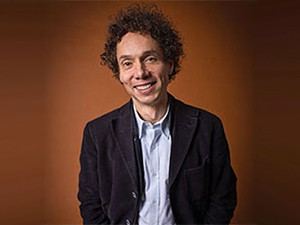
In a world where we are pushing a lot of our data collection onto the backs of software and machines, the role of human experts has to change.
This is the view of author and futurist Malcolm Gladwell, delivering a keynote address at Citrix Synergy 2017 in Orlando, Florida.
"As we move into an age where big data, machine-learning and artificial intelligence (AI) take up a larger and larger piece of what it means to collect information, in any given domain, the difficulty we have in making a transition becomes more and more problematic," he said.
The transition he was speaking about is how experts adjust to a modern and increasingly automated and mechanised world, and how their roles evolve to stay relevant.
Gladwell made reference to a theory from security expert Gregory Treverton, who famously made a distinction between puzzles and mysteries. To Treverton, a puzzle is a problem that can be solved by gaining more information. However, with a mystery you have the exact opposite problem of having too much information ? a mystery is solved by making sense of the information you already have.
The futurist said the distinction is crucial because we no longer live in a puzzle world, we live in a mystery world. He said this is relevant because the nature of problems that modern society faces are fundamentally different to those in the past.
"I think that is a very useful way to contextualise the idea of the future of work and what it will mean to be an expert in the future. I think the answer is that an expert in the future is not a puzzle-solver, not someone who goes around gathering information. The expert of the future is a mystery-solver, someone who is practised in the incredibly complex art of making sense of complexity," Gladwell explained.
"What we want from experts now is different from what we wanted from them in a pre-automation age. What we want experts to do in the modern world is to occupy structural holes in the decision-making chain that a machine can never touch.
"What we need to do if we want to understand the nature of this new role is to have a better understanding of what those holes are."
He said this is an issue across the board for experts ? giving examples from healthcare professionals and teachers, to security experts and sports team managers ? who have seen big data, machine-learning and automation dramatically change the dynamics of decision-making in their particular fields of expertise.
This change demands a new role of the expert, but does not make them obsolete, he noted.
"People often ask the question: does this coming world of automation and machine-learning replace human beings? And the answer is no, it does not. But what it does do is clarify what the role of human beings ought to be.
"It says that what we need from human experts are people who can act socially, not just operationally. People who can be analysts and not just collectors of information. People who are comfortable with uncertainty, who are able to have a complicated, intimate and sensitive real conversation with a parent or a patient and get at the core of the problem on the table."
Gladwell said this transformation is both good and bad news for experts.
"The bad news is that the role of the expert is an awful lot harder. But at the same time there is good news as well, which says that in the future we are not getting rid of human judgement but we are actually in much more need of human judgement than ever before," he concluded.
Share